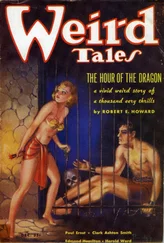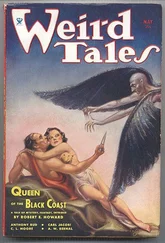Robert Howard - Tigers Of The Sea
Здесь есть возможность читать онлайн «Robert Howard - Tigers Of The Sea» весь текст электронной книги совершенно бесплатно (целиком полную версию без сокращений). В некоторых случаях можно слушать аудио, скачать через торрент в формате fb2 и присутствует краткое содержание. Жанр: Боевая фантастика, на английском языке. Описание произведения, (предисловие) а так же отзывы посетителей доступны на портале библиотеки ЛибКат.
- Название:Tigers Of The Sea
- Автор:
- Жанр:
- Год:неизвестен
- ISBN:нет данных
- Рейтинг книги:4 / 5. Голосов: 1
-
Избранное:Добавить в избранное
- Отзывы:
-
Ваша оценка:
- 80
- 1
- 2
- 3
- 4
- 5
Tigers Of The Sea: краткое содержание, описание и аннотация
Предлагаем к чтению аннотацию, описание, краткое содержание или предисловие (зависит от того, что написал сам автор книги «Tigers Of The Sea»). Если вы не нашли необходимую информацию о книге — напишите в комментариях, мы постараемся отыскать её.
Tigers Of The Sea — читать онлайн бесплатно полную книгу (весь текст) целиком
Ниже представлен текст книги, разбитый по страницам. Система сохранения места последней прочитанной страницы, позволяет с удобством читать онлайн бесплатно книгу «Tigers Of The Sea», без необходимости каждый раз заново искать на чём Вы остановились. Поставьте закладку, и сможете в любой момент перейти на страницу, на которой закончили чтение.
Интервал:
Закладка:
Wulfhere cursed him heartedly. "We seafarers are so well loved by the Scots that my red beard alone would be enough to hang me. But even so, were I not captain of this ship, and bound by duty to it, I'd chance it rather than see you go into danger alone, and you such an empty-headed fool!"
Cormac laughed deeply. "Wait for me until dawn," he instructed, "and no longer."
Then, dropping from the after rail, he struck out for the shore, swimming strongly in spite of his mail and weapons. He swam along the base of the cliffs and presently found a shelving ledge from which a steep incline led upward. It might have taxed the agility of a mountain goat to have made the ascent there, but Cormac was not inclined to make the long circuit about the promontory. He climbed straight upward and, after a considerable strain of energy and skill, he gained the top of the cliffs and made his way along them to the point where they joined a steep ridge on the mainland. Down the southern slope of this he made his way toward the distant twinkle of fires that marked the Dalriadian town of Ara.
He had not taken half a dozen steps when a sound behind him brought him about, blade at the ready. A huge figure bulked dimly in the starlight.
"Hrut! What in the name of seven devils-"
"Wulfhere sent me after you," rumbled the big carle. "He feared harm might come to you."
Cormac was a man of irascible temper. He cursed Hrut and Wulfhere impartially. Hrut listened stolidly and Cormac knew the futility of arguing with him. The big Dane was a silent, moody creature whose mind had been slightly affected by a sword-cut on the head. But he was brave and loyal and his skill at woodcraft was second only to Cormac's.
"Come along," said Cormac, concluding his tirade, "but you cannot come into the village with me. You understand that you must hide outside the walls?"
The carle nodded, and motioning him to follow, Cormac took up his way at a steady trot. Hrut followed swiftly and silently as a ghost for all his bulk. Cormac went swiftly, for he would be crowded indeed to accomplish what he had set out to do and return to the dragon-ship by mid-day-but he went warily, for he expected momentarily to meet a party of warriors leaving or returning to the town. Yet luck was with him, and soon he crouched among the trees within arrow shot of the village.
"Hide here," he whispered to Hrut, "and on no account come any nearer the town. If you hear a brawl, wait until an hour before dawn; then, if you have heard naught from me, go back to Wulfhere. Do you understand?"
The usual nod was the answer and as Hrut faded back among the trees, Cormac went boldly toward the village.
Ara was build close to the shore of a small, land-locked bay and Cormac saw the crude hide coracles of the Dalriadians drawn up on the beach. In these they swept south in fierce raids on the Britons' and Saxons, or crossed to Ulster for supplies and reinforcements. Ara was more of an army camp than a town, the real seat of Dalriadia lying some distance inland.
The village was not a particularly imposing place. Its few hundred wattle and mud huts were surrounded by a low wall of rough stones, but Cormac knew the temper of its inhabitants. What the Caledonian Gaels lacked in wealth and armament they made up in unquenchable ferocity. A hundred years of ceaseless conflict with Pict, Roman, Briton and Saxon had left them little opportunity to cultivate the natural seeds of civilization that was an heritage of their native land. The Gaels of Caledonia had gone backward a step; they were behind their Irish cousins in culture and artisanship, but they had not lost an iota of the Gaelic fighting fury.
Their ancestors had come from Ulahd into Caledonia, driven by a stronger tribe of the southern Irish. Cormac, born in what was later known as Connacht, was a son of these conquerors, and felt himself not only distinct from these transplanted Gaels, but from their cousins in northern Erin. Still, he had spent enough time among these people to deceive them, he felt.
He strode up to the crude gate and shouted for entrance before he was perceived by the guard, who were prone to be lax in their vigilance in the face of apparent quietude-a universal Celtic trait. A harsh voice ordered him to stand still, while a torch thrust above the gate shone its flickering light full on him. In its illumination Cormac could see, framed above the gate, fierce faces with unkempt beards and cold grey or blue eyes.
"Who are you?" one of the guards demanded.
"Partha Mac Othna, of Ulahd. I have come to take service under your chief, Eochaidh Mac Aible."
"Your garments are dripping wet."
"And they were not it would be a marvel," answered Cormac. "There was a boat load of us set sail from Ulahd this morning. On the way a Saxon sea-rover ran us down and all but I perished in the waves and the arrows the pirates rained upon us. I caught a piece of the broken mast and essayed to float."
"And what of the Saxon?"
"I saw the sails disappear southward. Mayhap they raid the Britons."
"How is it that the guard along the beach did not see you when you finally came ashore?"
"I made shore more than a mile to the south, and glimpsing the lights through the trees, came here. I have been here aforetime and knew it to be Ara, whither I was bound."
"Let him in," growled one of the Dalriadians. "His tale rings true."
The clumsy gate swung open and Cormac entered the fortified camp of his hereditary foes. Fires blazed between the huts, and gathered close about the gate was the curious throng who had heard the guard challenge Cormac. Men, women and children partook of the wildness and savagery of their hard country. The women, splendidly built amazons with loose flowing hair, stared at him curiously, and dirty-faced, half-naked children peered at him from under shocks of tangled hair-and Cormac noted that each held' a weapon of sorts. Brats scarcely able to toddle held a stone or a piece of wood. This symbolized the fierce life they led, when even the very babes had learned to snatch up a weapon at the first hint of alarm-aye, and to fight like wounded wildcats if need be. Cormac noted the fierceness of the people, their lean, hard savagery. No wonder Rome had never broken these people!
Some fifteen years had passed since Cormac had fought in the ranks of the ferocious warriors. He had no fear of being recognized by any of his former comrades. Nor, with his thick beard as a disguise, did he expect recognition as Wulfhere's comrade.
Cormac followed the warrior who led him toward the largest hut in the village. This, the pirate was sure, housed the chieftain and his folk. There was no elegance in Caledonia. King Gol's palace was a wattled hut. Cormac smiled to himself as he compared this village with the cities he had seen in his wanderings. Yet it was not walls and towers that made a city, he reflected, but the people within.
He was escorted into the great hut where a score of warriors were drinking from leather jacks about a crudely carved table. At the head sat the chief, known to Cormac of old, and at his elbow the inevitable minstrel-a characteristic of Celtic court life, however crude the court. Cormac involuntarily compared this skin-clad, shock-headed kern to the cultured and chivalrous Donal.
"Son of Ailbe," said Cormac's escort, "here is a weapon-man from Erin who wishes to take service under you."
"Who is your chief?" hiccupped Eochaidh, and Cormac saw that the Dalriadian was drunk.
"I am a free wanderer," answered the Wolf. "Aforetime I followed the bows of Donn Ruadh Mac Fin, flaith na Ulahd."
"Sit ye down and drink," ordered Eochaidh with an uncertain wave of his hairy hand. "Later I will talk with you."
No more attention was paid to Cormac, except the Scots made a place for him and a shockheaded gilly filled his cup with the fiery potheen so relished by the Gaels. The Wolf's ranging eye took in all the details of the scene, passed casually over the Dalriadian fighting-men and rested long on two men who sat almost opposite him. One of these Cormac knew-he was a renegade Norseman, Sigrel by name, who had found sanctuary among the foes of his race. Cormac's pulse quickened as he caught the evil eyes of the man fixed narrowly on him, but the sight of the man beside the Norseman made him forget Sigrel for the moment.
Читать дальшеИнтервал:
Закладка:
Похожие книги на «Tigers Of The Sea»
Представляем Вашему вниманию похожие книги на «Tigers Of The Sea» списком для выбора. Мы отобрали схожую по названию и смыслу литературу в надежде предоставить читателям больше вариантов отыскать новые, интересные, ещё непрочитанные произведения.
Обсуждение, отзывы о книге «Tigers Of The Sea» и просто собственные мнения читателей. Оставьте ваши комментарии, напишите, что Вы думаете о произведении, его смысле или главных героях. Укажите что конкретно понравилось, а что нет, и почему Вы так считаете.






